Mentors and fellows visited three schools throughout Tashkent on day five, meeting with young students to talk about entrepreneurship, finding their passion, robotics and more.
At School #31, mentors spoke to a classroom of girls from sixth to eighth grade, sharing about their diverse careers in STEM. Addressing the classroom, mentor Maile Smith urged students to think critically and advocate for themselves: “I learned to take a seat at the table even if I’m not offered a seat at the table,” she said.
Throughout the morning, mentors spoke about their career trajectories, encouraging the girls to think 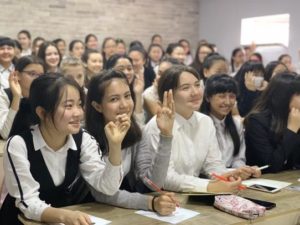 openly when imagining their future careers. “Don’t be afraid to ask questions and to question the opinions of other people,” said Maile. “If you stay curious, you’ll learn.” During her talk on finding your passion, mentor Hosai Omarkhil spoke about the need to reinvent yourself and continue to invest in education. “Things are not going to be easy – there will be challenges. But know that you have the strength to draw from. Don’t underestimate yourself; you are capable of a lot more than you think you are,” she said.
openly when imagining their future careers. “Don’t be afraid to ask questions and to question the opinions of other people,” said Maile. “If you stay curious, you’ll learn.” During her talk on finding your passion, mentor Hosai Omarkhil spoke about the need to reinvent yourself and continue to invest in education. “Things are not going to be easy – there will be challenges. But know that you have the strength to draw from. Don’t underestimate yourself; you are capable of a lot more than you think you are,” she said.
During her session, mentor Elaina Tia led students in an exercise called “My Three Alternative Lives,” an activity that prompted the girls to think about their current career aspirations, their “Plan B” and the careers they would unabashedly pursue if given the chance. Initially pursuing a career in finance, Elaina shared that she chose to follow her passion for design, ultimately becoming a UX designer at LinkedIn. She encouraged the girls to follow their curiosity, reminding them that they have the ability to choose their own path: “The only way I could find out what I loved was to try it,” she said.
At NEST School, mentors met students as young as 14 with business plans and entrepreneurial ambitions. During a workshop on design thinking, students broke out into groups, sharing their business ideas and gathering guidance from mentors on their path to entrepreneurship.
Meanwhile, at the robotics workshop at Westminster International University, fellows and mentors led a session on basic robotics, sharing the potential of robotics technology in addressing real-world business and social issues. Together, the group received hands-on experience working with Arduino and VEX IQ robotics.
TechWomen Connect
The afternoon was spent at TechWomen Connect, a time for the large group of delegates to reconnect, share their knowledge and expertise with one another and give updates on their post-TechWomen #twimpact.
Since TechWomen, fellows have been promoted, started coding camps for girls, created 3D printing companies that make prosthetic limbs for amputees and brought the first Python conference to Central Asia. Others have moved to new countries for new job opportunities, stepping outside of their comfort zone to take on new and challenging roles. Although their post-TechWomen trajectories varied, fellows shared a deep commitment to serving their communities. Their initiatives – SheForTech, Solve24, My ioLab, doITwomen and Technovation, to name a few – leveraged STEM education to better the lives of women and girls in their communities and beyond. The rest of the afternoon was spent in small groups sharing best practices on mentorship, corporate partnerships and managing work-life balance.
After a wonderful week in Tashkent, it was time for mentors and fellows to travel to Samarkand for the delegation trip’s final day with young students!
Follow the hashtag #twuz on Twitter for more content from the TechWomen delegation trip to Uzbekistan!

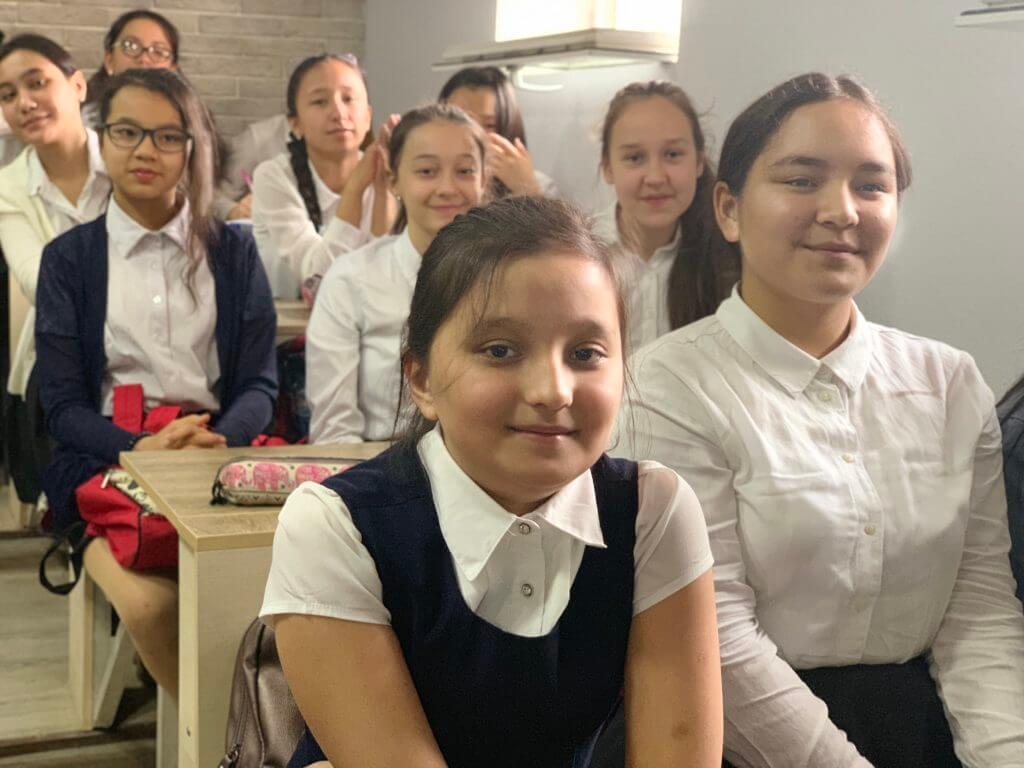
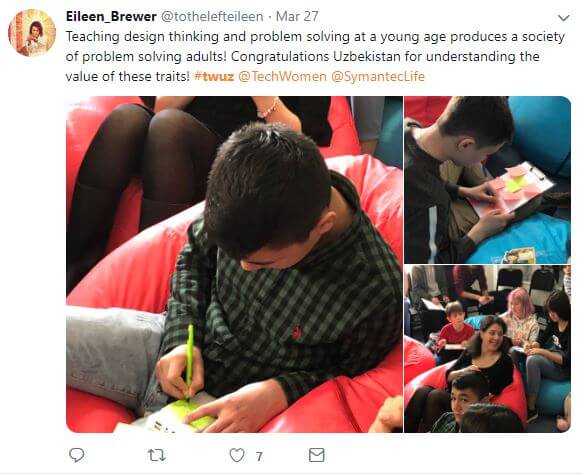
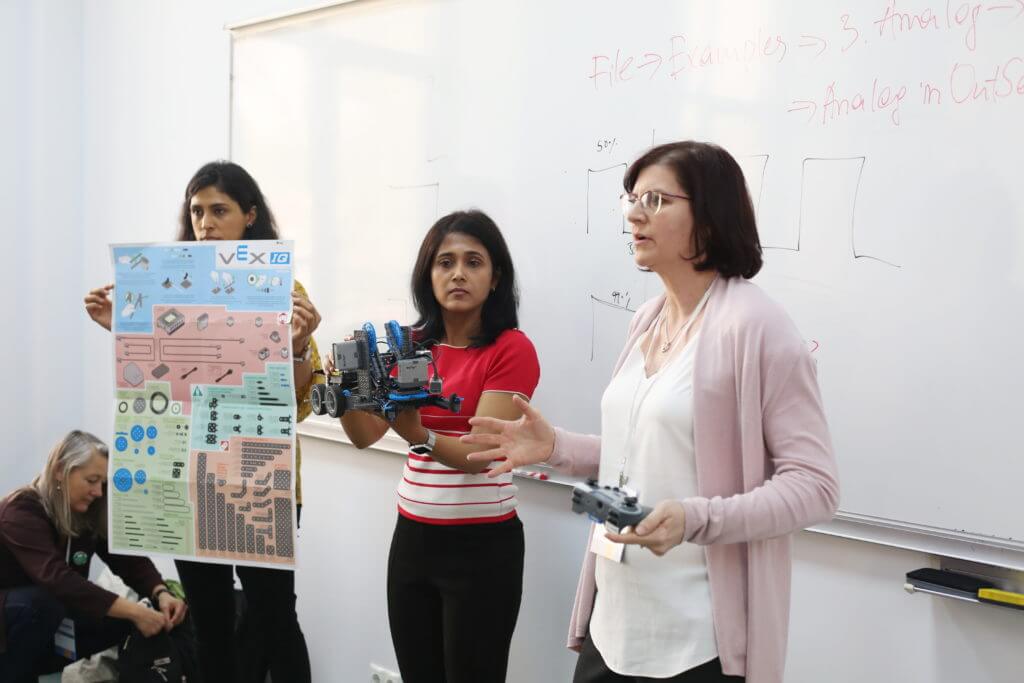
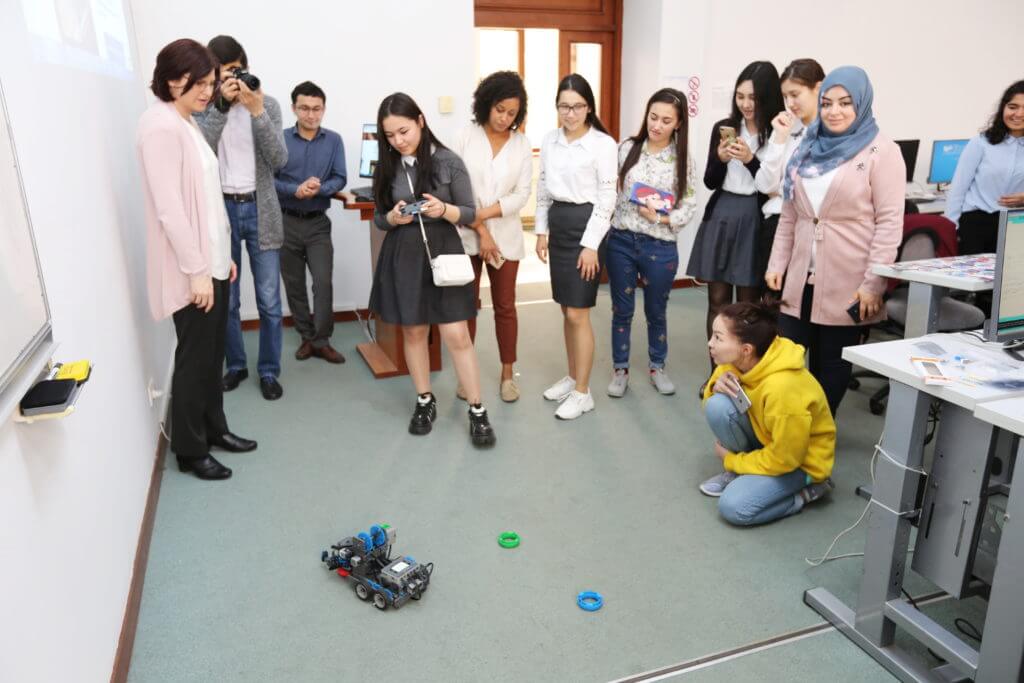






Speak Your Mind